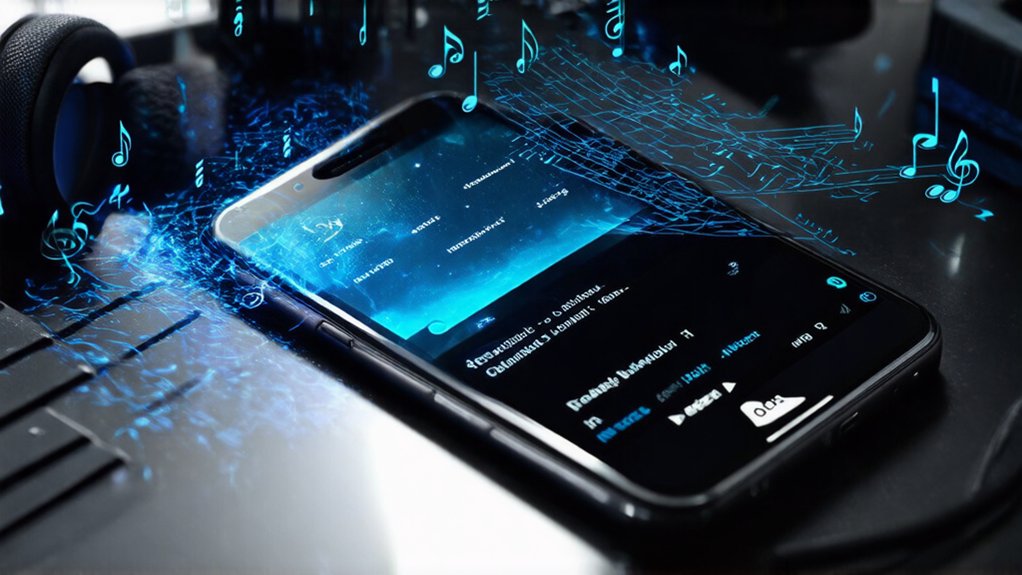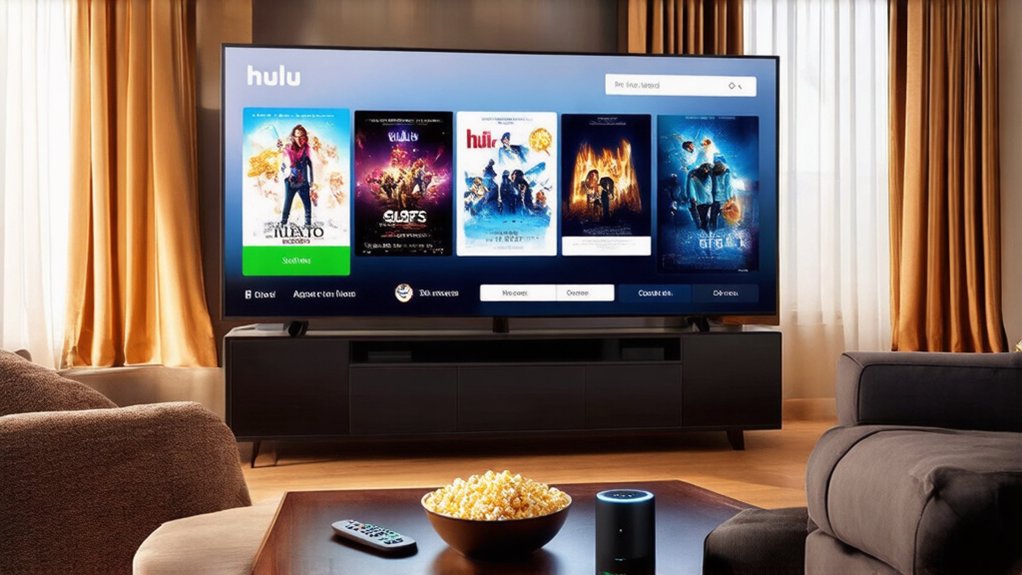AI-generated music is flooding Deezer at an alarming rate. Over 20,000 AI-created tracks hit the platform daily as of April 2025. That’s double what it was just three months earlier. Pretty wild stuff. These AI songs now make up about 18% of all new content uploaded each day, up from 10% in January. And according to Deezer’s Chief Innovation Officer, this digital deluge isn’t slowing down anytime soon.
AI tracks now flood Deezer—20,000 daily and doubling every quarter. The digital music tsunami shows no signs of stopping.
Deezer isn’t sitting around twiddling its thumbs, though. They launched their own AI detection tool in January 2025, with patent applications filed the month before. The system is impressively effective—it catches 100% of AI-generated tracks from popular tools like Suno and Udio. Many industry experts have praised Deezer’s detection capabilities as setting a new standard. CEO Alexis Lanternier has emphasized the company’s commitment to responsible use of AI throughout this technological transition. Nice trick.
The platform has taken a pragmatic approach to handling these robot musicians. They don’t ban AI tracks outright, but they do exclude them from recommendations. Their 9.7 million subscribers won’t find AI tunes in their algorithmic playlists. A tagging system is also in the works for better transparency. Because heaven forbid you mistake a soulless algorithm for the next Bob Dylan.
Most of these AI tracks sit unstreamed in the vast digital wasteland of Deezer’s catalog. Still, they pose risks for fraud and dilute the platform’s offerings. In 2023, Deezer already purged 26 million “useless” tracks. Quantity over quality? Not their style.
The music industry is understandably freaking out. Artists, labels, and publishers worry about AI models trained on copyrighted material without permission. Potential revenue loss for actual human creators could reach 24% by 2028. Ouch.
Deezer stands out as the only streaming platform to sign a global statement opposing unlicensed use of creative works for AI training. Meanwhile, tools like Suno and Udio—both already facing lawsuits from major labels and collection societies—continue making music creation accessible to anyone with a computer and a text prompt. Welcome to the future. It’s noisy.



